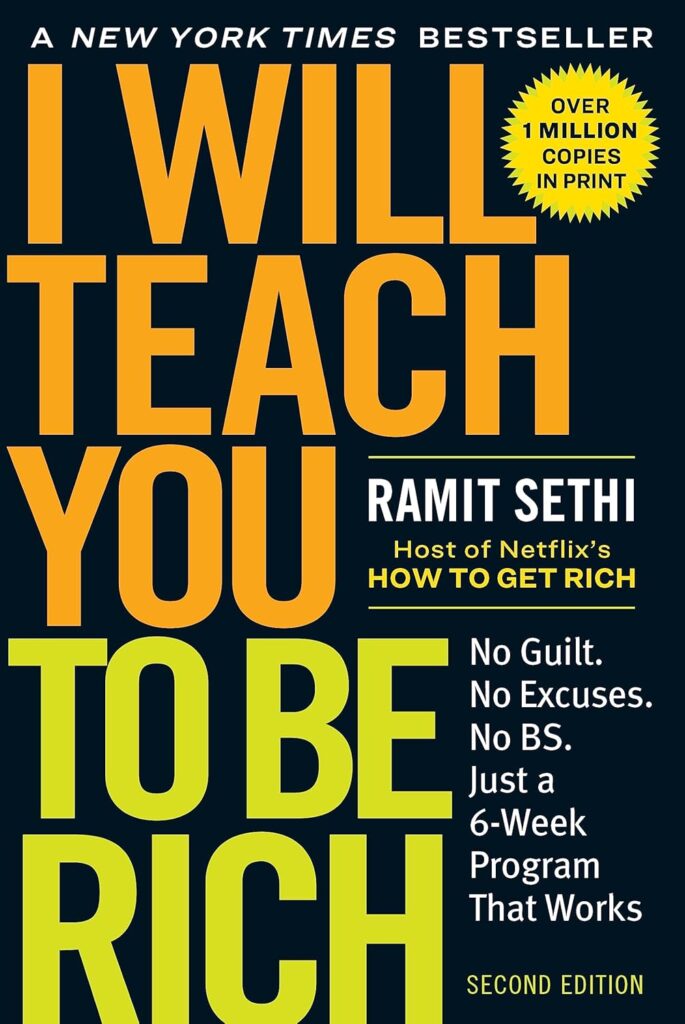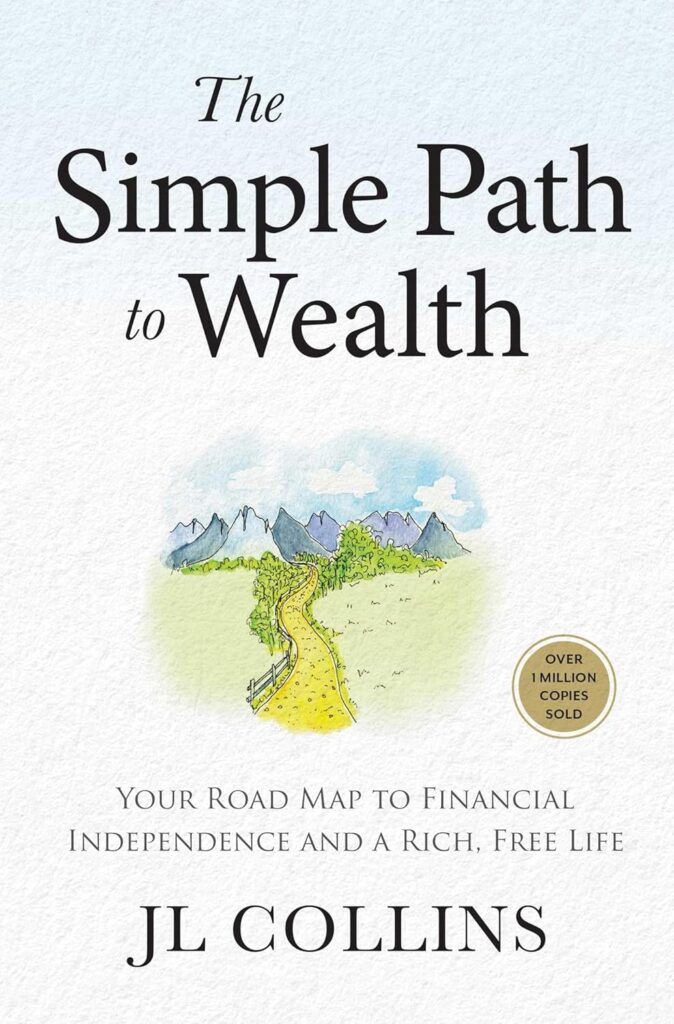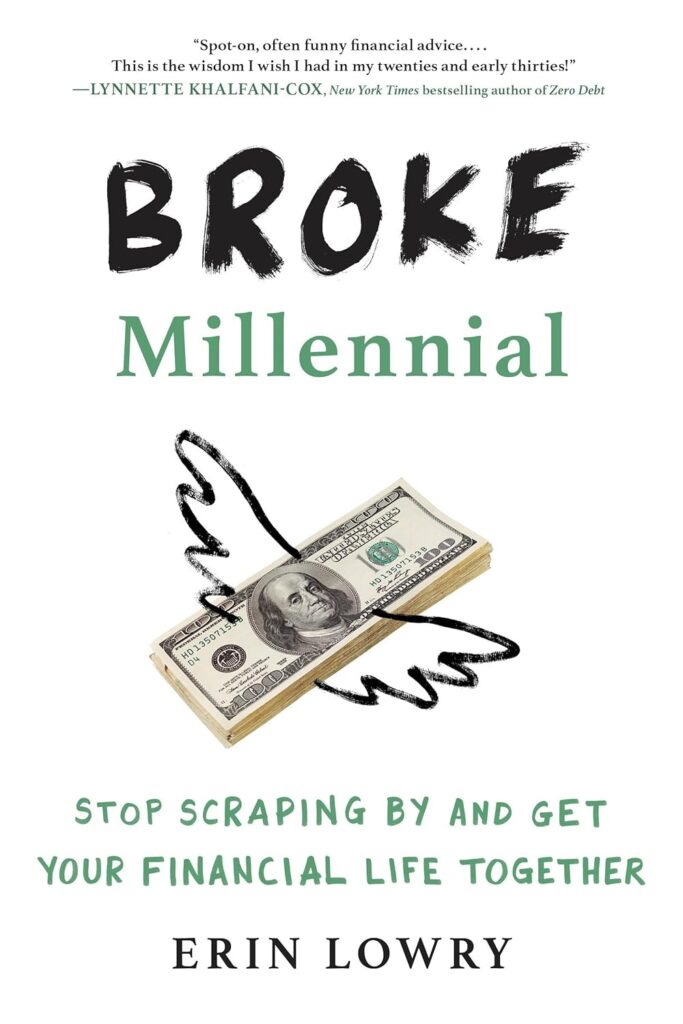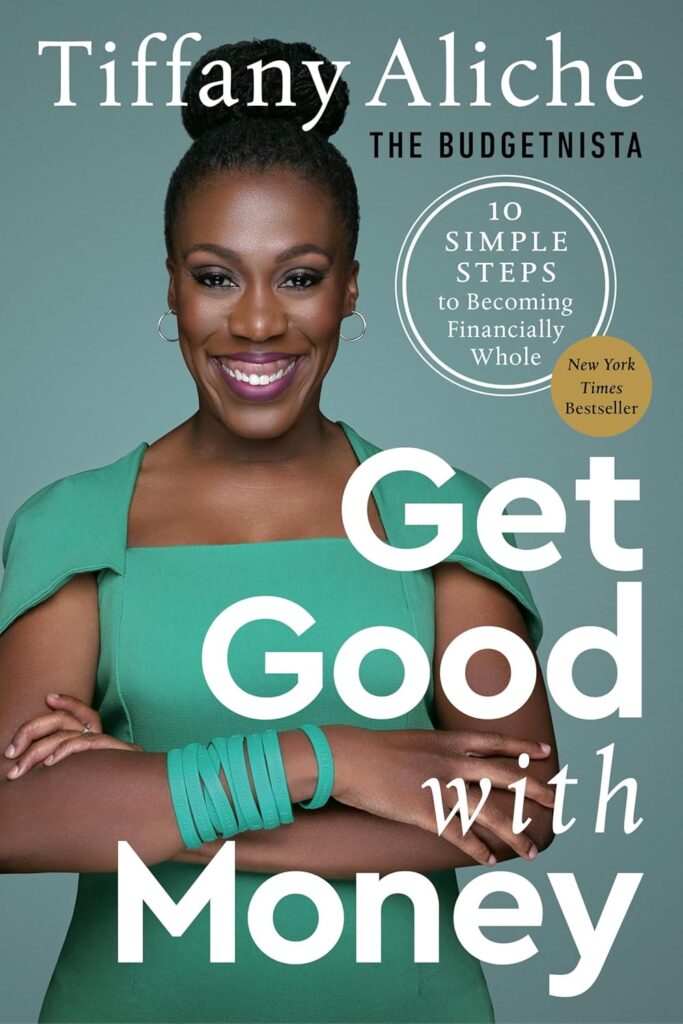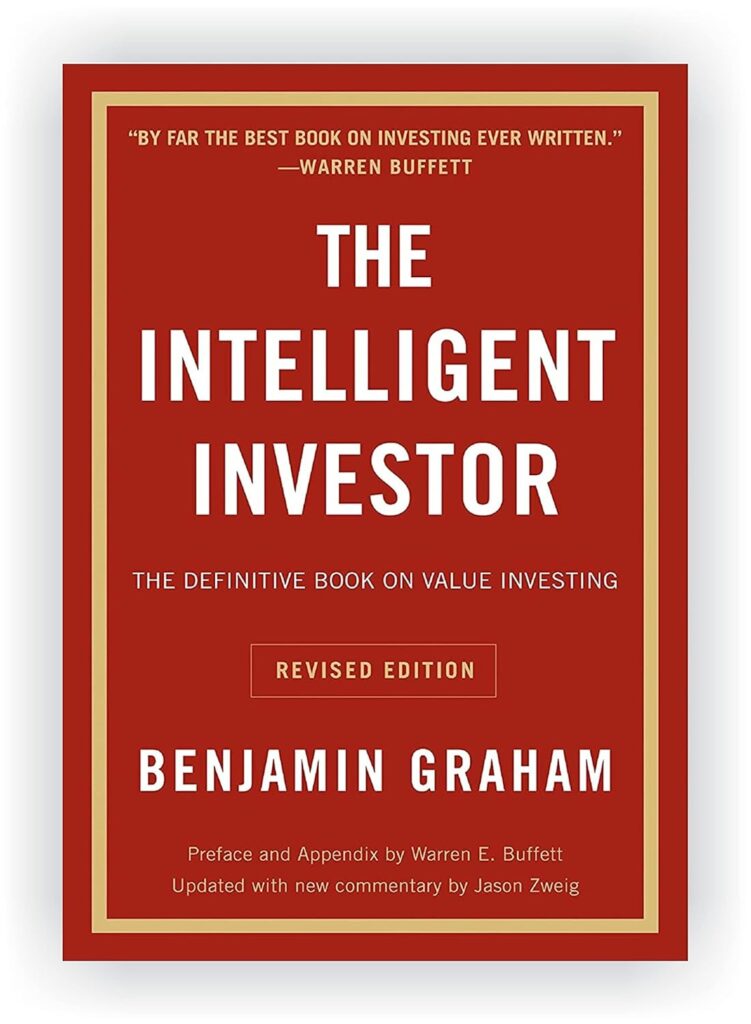Get a free notion reading tracker
Best Money Management Books for Adults in Their 30s
Turning 30 is a pivotal time for financial planning. Many adults in their 30s are dealing with a mix of responsibilities like student loans, starting families, considering homeownership, and looking towards long-term wealth building. Here’s a list of highly recommended money management books that cater well to this stage of life, covering foundational principles, investing, and financial psychology
I Will Teach You To Be Rich” by Ramit Sethi
This book offers a practical, no-guilt, six-week program for automating your finances, saving, investing, and even earning more. It’s especially popular with millennials for its modern, actionable advice.
I picked up I Will Teach You to Be Rich after seeing it everywhere—on book lists, podcasts, and even on Netflix. I was skeptical at first. The title felt a little clickbaity.
Ramit Sethi doesn’t just throw around vague advice about saving money or budgeting—he gives a step-by-step plan that actually makes sense, especially for someone in their 30s juggling debt, bills, and long-term goals.
What I appreciated most is how practical and non-judgmental his approach is. This book isn’t about giving up every luxury or living on rice and beans. In fact, Ramit encourages you to spend money on the things you love — as long as you’ve got your systems set up and you’re saving/investing consistently. That mindset shift alone took away so much guilt I didn’t realize I was carrying.
If you’re looking for a rigid, penny-pinching guide to money, this isn’t it. But if you want a smarter, more human way to manage your finances without constantly feeling stressed or behind, this book is 100% worth your time. I only wish I’d read it 5 years earlier.
“The Simple Path to Wealth” by J.L. Collins
The book is based on letters Collins wrote to his daughter, and you can feel that care and clarity in the writing. There’s no jargon-heavy fluff. It’s just straightforward, honest advice from someone who’s been there—and who wants you to win without falling into the traps set by flashy financial “experts,” high-fee advisors, or get-rich-quick schemes.
One of the biggest takeaways for me was how simple investing can be. Collins makes a compelling case for low-cost index fund investing—specifically VTSAX—and explains why trying to beat the market, hire someone else to do it for you, or chase hot stocks usually leads to disappointment (and lower returns). His “Why You Need F-You Money” chapter hit especially hard—it reframed financial independence as a path to freedom, not just wealth for its own sake.
The tone is refreshingly blunt, sometimes even cheeky, but that’s what makes it stick. I found myself highlighting more than half the book and rethinking how I approach my money—not only in terms of where it’s going, but why.
Broke Millennial: Stop Scraping By and Get Your Financial Life Together
Broke Millennial is the personal finance guide I didn’t know I needed. It’s smart, funny, super relatable, and real. Erin Lowry has this way of talking about money that doesn’t make you feel dumb or behind. Instead, she gives you the tools to get it together—without being boring, preachy, or overwhelming.
She goes beyond the usual money topics. Yes, she covers the basics like budgeting, student loans, credit, and investing—but she also dives into the awkward real-life situations like splitting the bill when you’re broke, talking money with your partner, and figuring out your emotional relationship with money (mine was definitely “it’s complicated” before this book).
Her tone is super conversational, like talking to a funny, financially-savvy big sister who’s been there, done that.
Get Good with Money: Ten Simple Steps to Becoming Financially Whole
Tiffany Aliche shares a clear, practical system built from real-life experience that helped her and now thousands of others take control of their finances.
The book walks you through 10 essential steps, from budgeting and saving to credit, insurance, and even estate planning. It’s the kind of guide that meets you where you are, no matter your income or background.
Her “noodle budget” concept was eye-opening—it helped me figure out what I really need to survive financially. And the tools she gives—like worksheets, checklists, and even sample scripts—make it so much easier to take action. It’s not just talk. It’s a full-on toolkit.
“The Intelligent Investor” by Benjamin Graham
You don’t need me to tell you this book is a classic—Warren Buffett’s endorsement alone puts it on every serious investor’s reading list. What really stuck with me were Chapters 1, 8, 10, and 20. Chapter 1 clearly defines the crucial difference between speculating and investing—something many blur today. Chapter 8 dives into emotional discipline, arguably the hardest yet most important aspect of investing. Chapter 10 helps filter out bad advice, and Chapter 20 hammers home the need for a margin of safety.
Graham’s concept of Mr. Market is brilliant—he shows how market emotion fuels mispricing, making value investing both possible and profitable. His insight that the market is a voting machine in the short term but a weighing machine in the long term has changed the way I look at price fluctuations.
The Little Book of Common Sense Investing” by John C. Bogle
John Bogle, the father of index funds, makes a compelling case for why low-cost, broad-market index investing outperforms complex strategies, flashy stock picks, or expensive fund managers.
The strategy is simple: buy and hold a diversified index fund like the S&P 500, keep your costs low, and stay the course. Bogle strips away the noise and hype of Wall Street to show that investing success is about consistency and discipline—not chasing trends.
What stood out most to me was how Bogle explains market returns in terms of fundamentals (dividends, earnings growth, and valuation changes) and how compounding gains work in your favor—if you don’t let compounding fees eat them up.
Final Thoughts
Turning 30 is a key moment for financial planning, balancing debts, family, homeownership, and wealth building. Here are top money management books tailored for this stage:
- “I Will Teach You To Be Rich” by Ramit Sethi offers a practical, guilt-free six-week plan for automating finances, saving, investing, and earning more, with a focus on enjoying spending while building security.
- “The Simple Path to Wealth” by J.L. Collins provides straightforward advice on low-cost index fund investing and financial independence, cutting through market hype with a clear, relatable voice.
- “Broke Millennial” by Erin Lowry covers foundational money topics plus real-life financial challenges, delivered with humor and empathy, making money management approachable.
- “Get Good with Money” by Tiffany Aliche lays out a 10-step system with actionable tools and concepts like the “noodle budget” to help anyone achieve financial wholeness, regardless of income.
- “The Intelligent Investor” by Benjamin Graham is a timeless investing classic emphasizing the difference between speculation and investing, emotional discipline, filtering advice, and value investing principles, famously endorsed by Warren Buffett.
- “The Little Book of Common Sense Investing” by John C. Bogle champions low-cost, broad-market index fund investing as the most effective long-term strategy, focusing on discipline, compounding returns, and minimizing fees.
These books offer practical, accessible strategies—from automating your finances and managing emotions to embracing low-cost investing and long-term wealth building. Whether you’re tackling debt, saving for the future, or seeking financial freedom, the advice in these guides can help you build a solid foundation without sacrificing your lifestyle or sanity.

